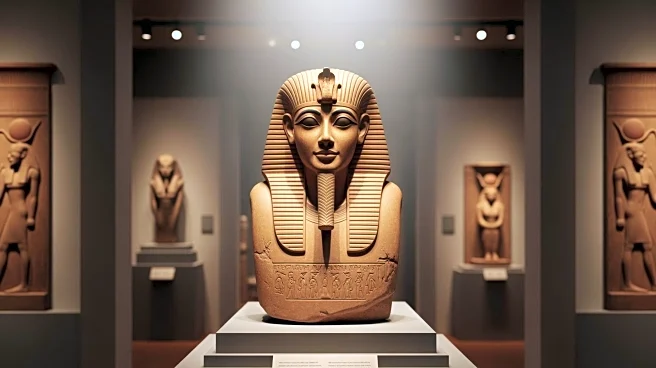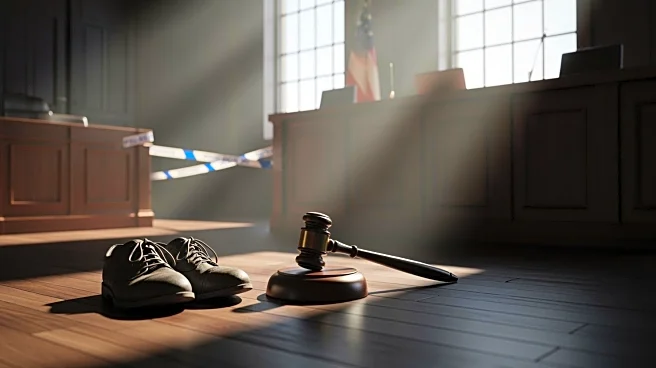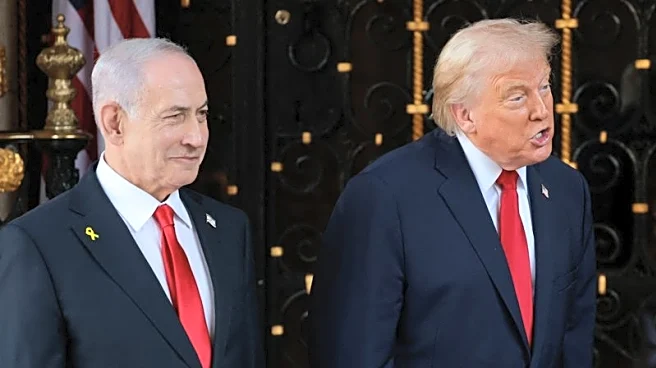What's Happening?
The opening of the Grand Egyptian Museum in Giza has reignited calls from Egyptologists and former officials for the British Museum to return the Rosetta Stone to Egypt. The artifact, taken by British forces
in 1801, played a crucial role in deciphering hieroglyphs. Zaha Hawass, former minister of tourism and antiquities, emphasized the need for Western museums to return looted artifacts, including the Rosetta Stone, the Zodiac from the Louvre, and the Bust of Nefertiti from Berlin. Despite these calls, the British Museum cites legal barriers under the British Museum Act of 1963, which restricts the return of objects from its collection.
Why It's Important?
The debate over the Rosetta Stone's return highlights ongoing discussions about cultural restitution and the legacy of colonial-era extractions. The artifact's significance in understanding ancient Egyptian language and history underscores the importance of its repatriation to Egypt. The opening of the Grand Egyptian Museum, a major cultural and tourism initiative, strengthens Egypt's position in seeking the return of key artifacts. This issue reflects broader global conversations about the ethical responsibilities of museums and the need to address historical injustices.
What's Next?
Egypt may pursue formal requests for the return of the Rosetta Stone and other artifacts, potentially leading to diplomatic negotiations. The British Museum's stance, citing legal restrictions, suggests that any resolution may require changes to existing laws or exceptional circumstances. The international community may engage in discussions about cultural heritage and the responsibilities of museums in preserving and returning artifacts.
Beyond the Headlines
The call for the Rosetta Stone's return raises questions about the role of museums in preserving cultural heritage and the impact of colonial history on modern cultural relations. It prompts discussions on the ethical considerations of artifact ownership and the importance of collaborative efforts in cultural preservation. The issue also highlights the potential for museums to serve as platforms for dialogue and reconciliation.











